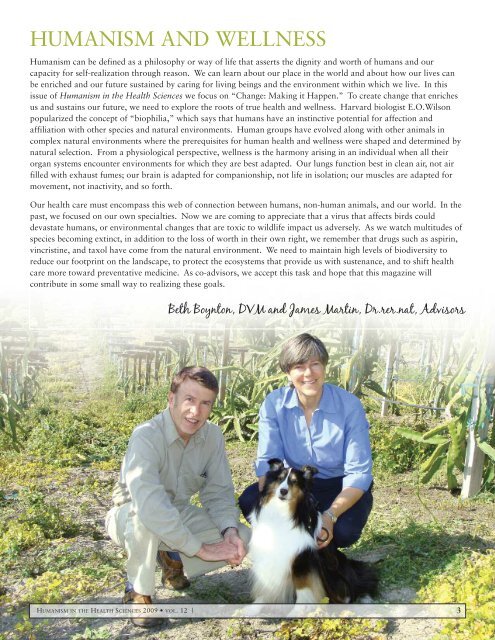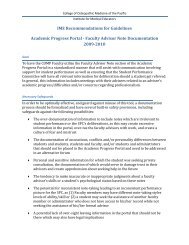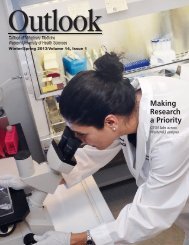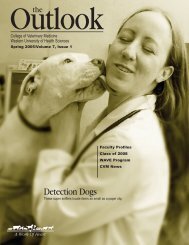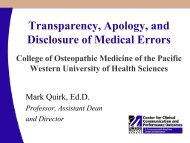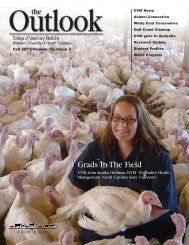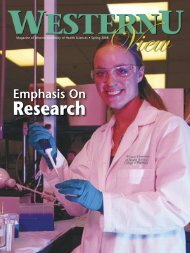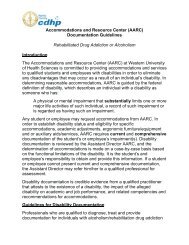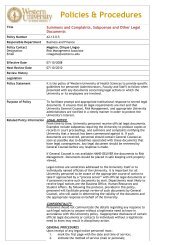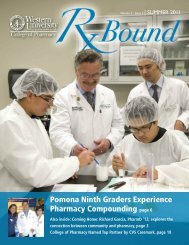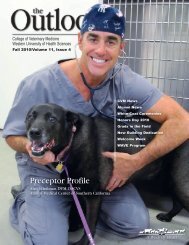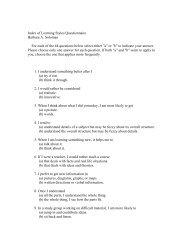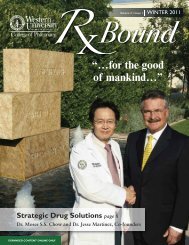Humanism 2009 - Western University of Health Sciences
Humanism 2009 - Western University of Health Sciences
Humanism 2009 - Western University of Health Sciences
You also want an ePaper? Increase the reach of your titles
YUMPU automatically turns print PDFs into web optimized ePapers that Google loves.
HUMANISM AND WELLNESS<br />
<strong>Humanism</strong> can be defined as a philosophy or way <strong>of</strong> life that asserts the dignity and worth <strong>of</strong> humans and our<br />
capacity for self-realization through reason. We can learn about our place in the world and about how our lives can<br />
be enriched and our future sustained by caring for living beings and the environment within which we live. In this<br />
issue <strong>of</strong> <strong>Humanism</strong> in the <strong>Health</strong> <strong>Sciences</strong> we focus on “Change: Making it Happen.” To create change that enriches<br />
us and sustains our future, we need to explore the roots <strong>of</strong> true health and wellness. Harvard biologist E.O.Wilson<br />
popularized the concept <strong>of</strong> “biophilia,” which says that humans have an instinctive potential for affection and<br />
affiliation with other species and natural environments. Human groups have evolved along with other animals in<br />
complex natural environments where the prerequisites for human health and wellness were shaped and determined by<br />
natural selection. From a physiological perspective, wellness is the harmony arising in an individual when all their<br />
organ systems encounter environments for which they are best adapted. Our lungs function best in clean air, not air<br />
filled with exhaust fumes; our brain is adapted for companionship, not life in isolation; our muscles are adapted for<br />
movement, not inactivity, and so forth.<br />
Our health care must encompass this web <strong>of</strong> connection between humans, non-human animals, and our world. In the<br />
past, we focused on our own specialties. Now we are coming to appreciate that a virus that affects birds could<br />
devastate humans, or environmental changes that are toxic to wildlife impact us adversely. As we watch multitudes <strong>of</strong><br />
species becoming extinct, in addition to the loss <strong>of</strong> worth in their own right, we remember that drugs such as aspirin,<br />
vincristine, and taxol have come from the natural environment. We need to maintain high levels <strong>of</strong> biodiversity to<br />
reduce our footprint on the landscape, to protect the ecosystems that provide us with sustenance, and to shift health<br />
care more toward preventative medicine. As co-advisors, we accept this task and hope that this magazine will<br />
contribute in some small way to realizing these goals.<br />
Beth Boynton, DVM and James Martin, Dr.rer.nat, Advisors<br />
HUMANISM IN THE HEALTH SCIENCES <strong>2009</strong> • VOL. 12 | 3


